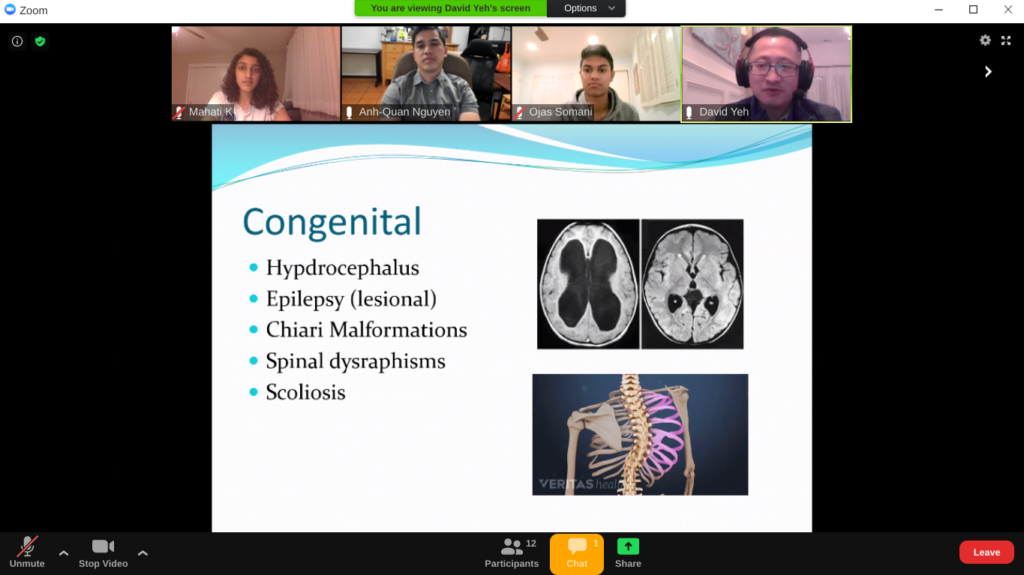Last year, sophomore Mahati Kotamraju attended a meeting of Future Doctors of America (FDA), one of the two medical-related clubs on campus (the other is Global Health Club). She came to the classroom, excited to learn something new, only to watch a YouTube video and be excused 15 minutes later.
“I didn’t get what I needed from the clubs,” Kotamraju said. “I felt like the medical clubs on campus were disorganized and didn’t follow a proper pattern. They jumped around from topic to topic and didn’t really offer students a proper view of the topic.”
This year, Kotamraju decided to create her own medical group. She called it Toga Medical. Since the school already has two medical clubs, which each have dozens of members, ASB denied Toga Medical’s application to be an on-campus club. This meant Toga Medical has become an independent club with no official ties to the school.
The other officers of the club include sophomore Ojas Somani, vice president; junior Ishanya Hebbalae, secretary; and sophomore Aarav Badani, treasurer. The group held its first meetings in October and is off to a successful start with membership at 15 to 17 students.
“I think our success outside of school, without the help of ASB, shows how essential we are to students,” Somani said. “We’re going to try to reapply to ASB because of their resources and outlets for advertisement. This time, we probably will be successful.”
Kotamraju is hoping to be approved by ASB before the school moves back to in-person learning so that Toga Medical can host meetings on-campus.
Kotamraju said the biggest difference between Toga Medical and other medical clubs on campus is its structured schedule.
Toga Medical picks one specialty, or medical topic, per month. Throughout the month, the group hosts meetings, activities and talks from guest speakers that all center around that same topic. Kotamraju says this helps students get a comprehensive understanding of each specialty.
Unlike the other medical clubs, which have staff advisers, Toga Medical has a medical adviser, Dr. Anh-Quan Nguyen, an interventional cardiologist at Kaiser Permanente. Nguyen is also a mentor for Saratoga’s M-SET Robotics team, which is how Kotamraju met him.
“The fact that we have unlimited access to doctors through Dr. Nguyen also sets us apart,” Kotamraju said. “We’re guaranteed one doctor per month.”
Nguyen also provides input on the group’s curriculum and sets up the Zoom meetings.
Toga Medical meets once a week, usually at 4:30 p.m. or 7 p.m. on Wednesdays. Each hour-long meeting starts with an introductory activity before moving to a lecture or professional speaker, which takes up the bulk of the meeting.
Junior Rhheaa Mehta, a member of the group, said she would recommend the club to those interested in medicine.
“Toga Medical has been pretty helpful,” Mehta said. “I learned a lot about neuroscience and also what doctors do because they had a speaker series. The group has taught me a lot about things I didn’t know.”
In November, or “Neuro-November” as Kotamraju called it, the group explored optical illusions. Lectures included Troxler's effect on the brain, and speakers included Dr. Helly Lin, who works in the pharmaceutical industry, and Dr. David Yeh, a neurosurgeon.
Hebbalae said hosting doctors is a top goal.
“A medical professional can give you first-hand experience about their profession that most textbooks cannot,” Hebbalae said. “Besides the obvious wisdom that an experienced doctor, nurse practitioner or physician assistant brings, these individuals can also show aspiring healthcare workers that a career in medicine isn’t as unattainable as it seems.”
Aside from aspiring to become an official school club, Toga Medical also seeks to increase attendance in other ways. One idea that its officers have discussed is non-profit status. Kotamraju said this will allow the group to engage in activities within the medical community while granting members volunteer hours, a potential incentive for attendance.
Despite launching during a pandemic without the help of ASB, Toga Medical has experienced early success. Kotamraju said that she’s received messages from members saying that the group has opened their eyes to specialties they didn’t like before. For Kotamraju, it’s a full-circle moment.
“The main reason I created Toga Medical was to create a curriculum and follow a path that would give our members a proper understanding of the different specialties in the medical field,” Kotamraju said. “Hearing from our current members that we have achieved our goal feels wonderful. I’m excited to see what the future holds.”
























